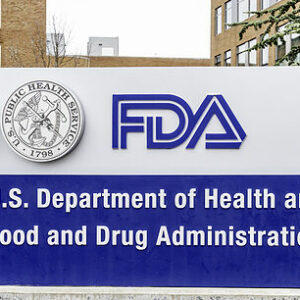The most recent data from the National Youth Tobacco Survey (NYTS) tell a story that you probably haven’t heard.
Recently, the U.S. Food and Drug Administration (FDA) and Centers for Disease Control and Prevention released the 2022 NYTS results, which showed underage e-cigarette use had dropped below the level that led the FDA to declare an “epidemic” in 2018. The data show the epidemic continues to be reversed.
That same data show youth combustible cigarette smoking is at an all-time low, standing at 1.6 percent. In fact, youth use of all tobacco products has decreased significantly over the past few years. Many stakeholders (including me) have worked tirelessly to reduce underage use, and they’ve succeeded. I applaud their efforts. We all should.
However, this progress isn’t being matched by a driving down of the number of adult smokers, currently numbering 34 million Americans according to the American Cancer Society. The FDA can do more to help America stop smoking, and they need to start talking to smokers again like they did before the 2018 NYTS data were released.
Like youth smoking, adult smoking rates have declined but not by nearly as much. Smoking continues to be the single largest preventable cause of death in the United States according to public health data. So, while it’s important to recognize the great strides that have been made in recent years to reduce youth tobacco use, it is equally important to recognize that there are still too many Americans smoking.
As a 20-year veteran of the FDA, most recently as the top scientist at the agency’s Center for Tobacco Products, I know it is home to talented scientists who want to do more to help smokers make better choices than sticking with cigarettes, while also guarding against underage nicotine use.
So, what can be done to accelerate driving down adult smoking in America? A vital strategy, which is urgently needed, is a more balanced approach by U.S. public health agencies when it comes to communicating about tobacco and nicotine products.
The FDA has invested heavily in numerous multi-media campaigns directed at teenagers and parents that are meant to reduce underage e-cigarette use. These types of campaigns should continue. What’s completely missing is a similar investment in communicating with adult smokers. The FDA must engage smokers in a consistent, public, and meaningful way to help them ideally quit smoking altogether or urge those who don’t quit to switch to innovative smoke-free products. FDA acknowledges that such products are a better choice than continued smoking. Let’s make sure adult smokers know that.
The message that all Americans need to hear from health experts is a simple one: If you don’t use tobacco products now, don’t start. If you smoke, quitting is the best choice. If you don’t quit, change to a smoke-free alternative. This message is supported by science, as evidenced by FDA’s authorization of nicotine products that, for adult smokers who completely switch to them, can significantly reduce their exposure to the harmful chemicals found in smoke or, for some products, reduce the risk of lung cancer and other smoking-related diseases.
Today, smokers are simply not hearing this message, and that needs to change, or close to 500,000 Americans could continue to die needlessly each year. Health experts have an obligation to proactively share information about better choices with adult smokers while continuing to guard against underage tobacco product use.
While I was still at FDA, Commissioner Scott Gottlieb announced a comprehensive plan that centered on moving smokers away from combusted cigarettes to less harmful tobacco products or completely away from all tobacco product use.
That plan was unveiled more than five years ago, but so far, action by the FDA has centered only on preventing underage use. The time is now to start acting to help adult smokers make better choices.
I hope my old colleagues at FDA, who are amazing public health scientists, will take the needed actions to accelerate the transition to a healthier America by moving smokers away from cigarettes.


